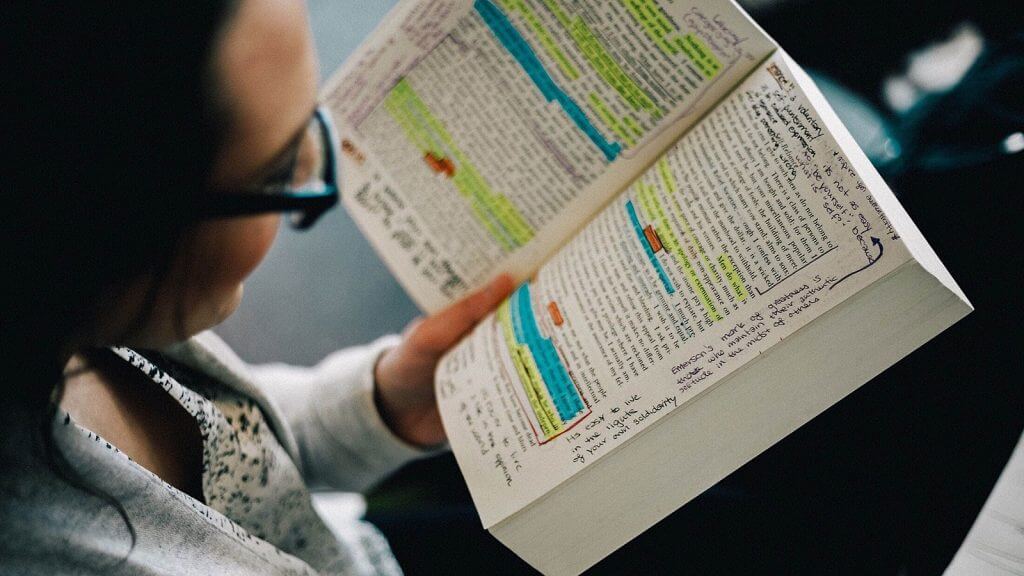11 College Student-Friendly Tips to Improve Reading Comprehension

College can be a busy time for students. Between classes, homework, studying, and socializing, there never seems to be enough time in the day. However, reading comprehension is one skill that cannot be neglected if you want to succeed in your education. In this article, we will provide 11 tips that will help college students improve their reading comprehension skills!
1. Take Breaks
Reading for long periods can be taxing, so it’s important to take regular breaks. This will help you stay focused and avoid getting overwhelmed.
When you take a break, step away from your reading material and do something else for a few minutes. This will help clear your mind and refresh you so that you can resume reading with renewed energy.

Without breaks, college students can suffer from fatigue and lose focus, which can lead to a decline in reading comprehension.
A decline in reading comprehension can manifest itself in several ways. Often, students will have difficulty understanding what they are reading and will be unable to remember key points. In addition, reading comprehension can decline when students become bored or overwhelmed while reading.
2. Make It a Habit
It’s important to make reading a daily habit if you want to improve your reading comprehension skills. This way, you’ll get used to the process of reading and be able to focus better when you’re actually doing it.
Additionally, by reading every day, you’ll gradually accumulate more knowledge, which will come in handy when taking exams or writing papers. That’s true for reading source material, obviously. But it’s also true for reading unrelated materials because those unrelated materials are helping you pick up on context clues and expanding your understanding of vocabulary and associations.
3. Read Aloud
Reading aloud can help improve your reading comprehension skills because it forces you to focus on the meaning of the text rather than just the individual words. Additionally, speaking the text aloud can help you remember it better later on.
That’s because your brain is getting the extra reinforcement of seeing the words, speaking the words, and listening to the words. A trifecta! If possible, try to read aloud with someone else so that you can have a discussion about the text afterward.
4. Implement Speed Reading
If you want to be able to read more quickly, practice speed reading techniques. However, you mustn’t sacrifice reading comprehension to speed through a text, so be sure you’re using an effective technique when doing so.
One speedreading method that you may want to try is pre-reading, where you go through the text to analyze it for page numbers, subheaders, and the length of the paragraphs. It sounds like a lot, but you can do it at a glance, and it helps your brain detect the visual patterns of the text so your eyes can adjust accordingly.
Another speed reading technique is called “chunking.” This involves reading a group of words as a unit rather than reading each word individually. When you chunk, you can still understand the general meaning of the text even if you don’t know every individual word.
You can also try using a finger or a pen to help guide your eyes as you read. This will help you focus on a smaller section of text at a time, which can make it easier to comprehend.
There are many other speed reading techniques out there, so be sure to do some research and find one that works best for you!
5. Pursue Your Interests
It’s helpful to read texts that are relevant to your studies and interests because they will be more engaging and easier to understand than texts that are completely unrelated to what you’re learning about. Trying to read about something that doesn’t interest you can lead to frustration and decreased comprehension levels. So find materials that capture your attention and stick with them!
6. Identify the Main Idea
If you want to improve your comprehension skills, it’s helpful to understand the main idea of a text before trying to read the details. This way, you’ll have a framework for understanding the information in the text, which will make it easier for you to follow along as you’re reading. You can usually get an idea of the main point of a text by skimming through it quickly before starting to read it in depth.
7. Use Flashcards and Other Study Aids
One great way to improve your understanding of key concepts and terms from the texts you’re reading is by using flashcards or other study aids. This will help reinforce what you’re learning so that the information is more likely to stick in your memory long-term. Try different methods until you find one that works best for you – there is no one “right” way to study for exams or papers
8. Take Notes
Taking notes while reading is another great way to remember important points later on during studying or exams. You can either take notes in your own words or use shorthand notation to keep track of key points. Some quick note-taking tips to help you get the most out of this one:
- Don’t try to write down every word that the author is saying. This will only lead to frustration and decreased reading comprehension levels.
- Don’t try to copy the author’s words verbatim. Not only is this difficult to do, but it’s also unnecessary. You can always go back and review the text later if you need to.
- Instead, try to summarize the main points of the text in your own words. This will help you better understand and remember what you’re reading.
9. Break It Down
Breaking down readings into manageable parts can also make them easier to comprehend. This means dividing a long text into shorter segments and focusing on one segment at a time before moving on to the next one.
This will depend on the reading material itself and how well you understand it. You may want to try reading for a certain amount of time (e.g. 10 minutes) and then take a break before moving on to the next section.
Alternatively, you could break the reading material down into smaller chunks and read for a certain number of pages at a time. It’s important to find a system that works best for you and that allows you to focus on the reading material without getting overwhelmed.
10. Practice Active Reading
Practice active reading techniques such as predicting, questioning, and summarizing to get the most out of what you read. Let’s look closer at each of those three techniques.
Predicting means guessing what is going to happen next in the text. (Don’t worry, you don’t have to get it right!)
Questioning means asking yourself questions about what you are reading. Questioning helps because it forces you to actively engage with the text, which in turn makes you more likely to remember the information. It also helps you better understand what you’re reading, as well as identify any areas that you may still need clarification on.
Summarizing means telling the most important parts of the story in your own words.
Predicting, questioning, and summarizing all help you better understand and remember what you’re reading. However, summarizing is especially important because it allows you to see the big picture of the text – that is, the main points that the author is trying to get across. This can be really helpful when it comes time to write a paper or take an exam.
11. Form a Reading Group
Discuss what you have read with others to solidify your understanding of the text.
A reading group can help you solidify your understanding of the text specifically by providing a forum in which to discuss the reading material with others. This will help you better understand the material as well as identify any areas that you may still need clarification on. Additionally, discussing the text with others can also be fun and social!
Frustrated your workload doesn’t give you enough time to get to know other people? This is a viable solution!
By following these tips, college students can improve their reading comprehension skills and set themselves up for success in their studies! If you have any other suggestions, please share them in the comments below! Thanks for reading!
[Featured Image by Wikimedia Commons License]








